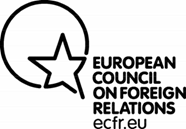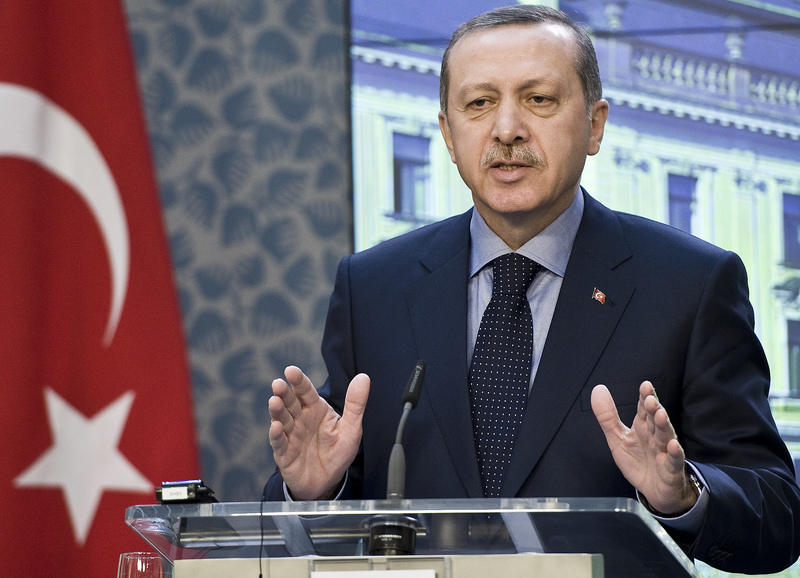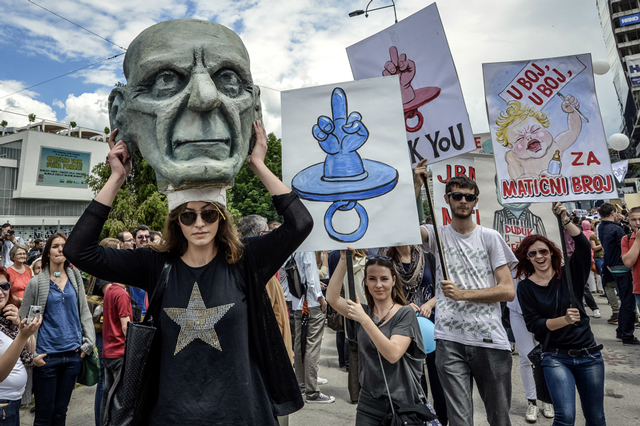21 Jun 2013 | Events
Date: 18 July, 6:30-8pm at ECFR
Venue: European Council on Foreign Relations, London
Tickets: Free, but space is limited. Email [email protected] if you’d like to attend.
Index, in partnership with the European Council on Foreign Relations, is holding a timely debate on the shifting world order and its impact on rights and freedoms. The event will also launch the latest issue of Index on Censorship magazine, including a special report on the multipolar world.
The balance of economic, political and social power is shifting across the world; in this debate we will ask how this might affect individuals’ rights and freedoms. In the last two months we have seen protests across the world as citizens challenge their governments. Meanwhile news of US internet companies being tapped by the NSA continue to hit the headlines. Discussions of who is tapping whom continue to be uncovered. From nations to companies, who has the power now?
The expert panelists include: Index CEO Kirsty Hughes, ECFR Senior Policy Fellow Anthony Dworkin, and Turkish journalist and writer Ece Temelkuran.


21 Jun 2013 | Europe and Central Asia

Turkish PM Recep Tayyip Erdogan in Prague earlier this year
Germany has reportedly blocked Turkey’s next steps towards European Union membership yesterday, as unrest continues in the cities of Ankara and Istanbul.
The protests, which began on 28 May, have been met with force from Turkish Prime Minister Recep Tayyip Erdogan — and Germany has been critical of the crackdown on demonstrators. There have been 5,000 injuries as well as four deaths since the start of unrest.
Talks furthering Turkey’s case for membership were scheduled in its capital, Ankara, next week. Moving forward with the process would have required unanimous agreement from the European Union’s 27 member nations at a meeting in Brussels yesterday.
Diplomats representing Germany blocked the decision because of remaining “open questions.” According to an EU diplomat the protests “obviously had an impact on the decision.”
Turkey has fired back at Germany’s decision, warning that it would cool its relations with the European Union, and “draw a strong reaction.”
Sara Yasin is an Editorial Assistant at Index. She tweets from @missyasin
21 Jun 2013 | Europe and Central Asia

Crowds hold up signs as they demonstrate in front of the Bosnian parliament building in Sarajevo demanding laws for personal identification numbers for newborns. (Photo: Sulejman Omerbasic / Demotix)
In the shadow of events in Turkey and Brazil, Bosnians have been taking to the streets. For over a week, citizens of the small Balkan country have been protesting their leaders’ failure to pass a new law on citizen identification numbers, leaving babies unable to travel for medical care. Milana Knezevic writes
As is often the case in Bosnia, this seemingly straightforward task soon took on an ethnic element. Serbian parliamentarians wanted the number to recognize the internal geographic split between the Serb majority entity Republika Srpska and the the Croat Bosniak majority Bosnian Federation. Their Croat and Bosniak counterparts disagree.
The political stalemate means that since February newborns in Bosnia have not been able to get passports.
Last Wednesday, activists organised a car blockade of parliament in Sarajevo. The impromptu show of support for Belmina Ibrisevic, a seriously ill infant who could not travel abroad to get treatment, quickly grew until several thousand people surrounded the building, trapping parliamentarians inside.
“It [the protest] is about those few brave citizens who decided to take a risk and react. Others came, following basic instinct and their conscience”, says Sarajevo-based activist and political commentator Nedim Jahic.
On Monday, the leaderless “babylution” took the shape of a tribute to baby Berina Hamidovic, who died at a hospital in Belgrade. After weeks of pleading with authorities, her parents decided to take her across the border without a passport.
“My Berina has died, because to Bosnian authorities she wasn’t alive”, father Emir told local press.
On Tuesday, some of Bosnia’s biggest music acts stepped onto a makeshift stage outside parliament. Behind them, projected onto the parliament building, loomed the image of a giant pacifier in the shape of defiant fist. It is estimated some 10,000 people gathered to see the show. Meanwhile, citizens of Tuzla, Mostar, and other cities have also organised demonstrations under the banner of “JMBG”, the name of the ID law. The official facebook page has 22,000 likes and counting, where photos, videos and articles are widely shared. People from across the world have tweeted and facebooked messages of support, as have some of the biggest stars of the region. Combined, this makes for a remarkable, country-wide wave of political expression not seen for years.
This is not the only time Bosnia’s leaders have been unwilling and unable to make important decisions. The complex system of ethnicity-based quotas and vetoes implemented with the 1995 Dayton peace agreement to accommodate Bosniak, Croat and Serb leaders, has led to political paralysis on a number of occasions.
“The timing was important was an important reason for people reacting the way they have in this particular case”, explains Florian Bieber, Professor in South East European Studies at the University of Graz, and a leading expert on post-war Bosnia. “Frustration had been accumulating over time, especially with the deteriorating economic situation. This is an issue that affects everyone, not only one group, which helped galvanised support across the population. It also has a human face. It’s not about losing money; it’s about lack of ID numbers risking children’s lives”.
The size and scope of the protests is not to be underestimated. The feeling of unity invites comparisons to the anti-war protests of 1992. Much has particularly been made of seemingly cross-ethnic nature of the demonstrations. But while it is certainly the case that Serbs, Croats and Bosniaks alike have been taking part and expressing solidarity, the movement has largely been confined to the Bosnian Federation. Recent student protests in Banja Luka, while likely inspired by the nationwide atmosphere of protest, have distanced themselves from the message of JMBG.
“Today’s protests are also important, however, without significant number of citizens from Republika Srpska, it is hard to expect real change. In todays’ conditions and political structure of Bosnia and Herzegovina, you cannot expect to have change and efficient pressure without relevant support coming from both entities, which is rarely the case”, Jahic concedes.
Politicians have also been unwilling to cooperate thus far. Some parliamentarians have refused to come back to work citing security fears, while Bakir Izetbegovic, the Bosnian representative to the three-member presidency, has urged people not to take to the streets.
Despite this, the movement rumbles on. The protesters have given the politicians a deadline of 30th June to resolve the ID number debacle, and Jahic says the first priority is to “see results on the directly addressed issue.” However, protesters have also demanded that politicians, who earn approximately six times the national average, take a 30% wage cut and place the money in a fund for Bosnians who need medical treatment abroad. This appears to invoke the frustration and anger about the general state of the country helping drive the scale of the protests.
While Bieber is uncertain whether the demands will be met and the elites will change their ways, he does believe this could be a turning point for the country.
“Even if they fail, the protests have made citizens feel they can achieve something”.
21 Jun 2013 | In the News
INDEX POLICY PAPER
Is the EU heading in the right direction on digital freedom?
While in principle the EU supports freedom of expression, it has often put more emphasis on digital competitiveness and has been slow to prioritise and protect digital freedom, Brian Pellot, digital policy advisor at Index on Censorship writes in this policy paper
(Index on Censorship)
BAHRAIN
HRW: ‘No Space for Political Dissent’ in Bahrain
New laws and lengthy jail terms for activists have put freedom of association in Bahrain under severe threat, according to a report from Human Rights Watch.
(VOA)
BANGLADESH
Facebook and freedom of speech
The parliament of Bangladesh on June 11 passed the Anti-Terrorism (Amendment) Bill 2013 which will allow the courts to accept videos, still photographs and audio clips used in Facebook, Twitter, Skype, and other social media for trial cases.
(Dhaka Tribune)
BORNEO
Film industry players told to instil patriotism, cultural values
Film industry players have been urged to instil the values of patriotism and culture in their products to educate society.
Deputy Home Minister Datuk Wan Junaidi Tuanku Jaafar said this was in order to change the perception of society towards the values of culture and nationhood.
(The Borneo Post)
BRAZIL
Brazil’s president meets protests with an anti-Erdogan response
Protests have popped up across the globe in recent years, but government response has varied. Rousseff’s approach contrasted with the adversarial position of Turkey’s Erdogan, for example.
(Christian Science Monitor)
CANADA
BC Supreme Court rejects Zesty’s comedian appeal
The BC Supreme Court has upheld a decision by the BC Human Rights Tribunal which found that Lorna Pardy’s complaint against comedian Guy Earle and the owners of Zesty’s restaurant was justified.
(Xtra!)
EUROPE
Media: freedom has declined in West Balkans, Turkey
Freedom of the media has declined in the past two years in the Balkans and in Turkey, OSCE Representative Dunja Mijatovic said at the EU ”Speak Up!” conference on Freedom of Expression here today.
(Ansa Med)
GHANA
Defamation against FCT Minister: Kaduna-based Publisher Risks N5b Libel Suit
FCT Minister, Senator Bala Mohammed has served notice of his intention to slam a Five Billion Naira (N5,000,000,000:00) on the Kaduna based Desert Herald newspaper and its publisher, Alhaji Tukur Mamu for defamation and libel following series of damaging publications against him by Mamu through his newspaper and two others. Similarly, the Director of Treasury of FCT Administration, Alhaji Ibrahim Bomai through the same solicitors has threatened to institute a Two Billion Naira (N2,000,000,000:00) against Mamu for the same offence of defamation and libel.
(Spy Ghana)
IRELAND
“The ferociousness of the censorship made Ireland a laughing stock”
Diarmaid Ferriter discusses the widespread censorship of publications in Ireland during the 20th century
(NewsTalk 106-108FM)
LIBYA
Blasphemy Charges Over Election Posters – Political Party Officials Could Face Death Penalty
Libyan judicial authorities should immediately drop all criminal charges that violate freedom of speech over election poster cartoons against two Libyan National Party officials. Under the laws being applied in this case, the men could face the death penalty over posters their party displayed during the 2012 election campaign for the General National Congress.
(All Africa)
MEXICO
Will Mexico’s plans for reducing violence mean anything for journalists?
Mexico’s president, Enrique Peña Nieto, promised that tackling crime and drug-related violence is a priority for his six-month-old government. While improving safety is important, Peña Nieto must also remember that protecting journalists and human rights workers must go beyond words, says Sara Yasin
(Index on Censorship)
TANZANIA
Zanzibar Legislators Call for National Unity Govt Self-Censorship
A LEGISLATOR of the Zanzibar House of Representatives, Mr Omar Ali Shehe (CUF), has said Zanzibaris were unhappy with the performance of the Government of National Unity (GNU), formed jointly between Chama Cha Mapinduzi (CCM) and CUF two-and-half years ago.
(All Africa)
TUNISIA
How Tunisia is Turning Into a Salafist Battleground
An interview with a professor who was attacked for standing up for secularism.
(The Atlantic)
TURKEY
Şanar Yurdatapan on Turkey: ‘Things will never be the same again’
In Phnom Penh, Cambodia, for the IFEX General Meeting and Strategy Conference 2013, Index Director of Campaigns and Policy Marek Marczynski spoke with 2002 Index on Censorship award winner Şanar Yurdatapan, a composer and song writer who campaigns against the prosecution of publishers by the Turkish authorities. Yurdatapan shared his views on the events sweeping Turkey
(Index on Censorship)
UNITED KINGDOM
The end of Britain’s social media prosecutions?
Keir Starmer’s new guidelines aim to minimise controversial criminal cases against Twitter and Facebook users. But will they work, asks Padraig Reidy
(Index on Censorship)
Psychic wins libel case over claim she duped Dublin audience
The publisher of the Daily Mail has agreed to pay “substantial” damages to a psychic after an article suggested she had “perpetrated a scam” on a Dublin theatre audience.
(Irish Times)
Government to propose new free speech clause for marriage supporters
Government ministers are expected to announce new proposals to offer more protection in law for those who express the view that marriage can only be between one man and one woman.
(Christian Concern)
UNITED STATES
Supreme Court upholds free speech for groups fighting AIDS
The Supreme Court rejects a federal law that requires organizations to announce anti-prostitution policies in order to receive funding.
(Los Angeles Times)
L. Brent Bozell III: Media coverage shows ‘anti-gay’ view censorship
The media elites have never been less interested in objectivity than they are right now on “gay marriage.” They don’t wear rainbow flags on their lapels when they appear on television, but the coverage speaks for itself.
(NVDaily)
Student wins free-speech lawsuit against teacher
A Michigan teacher who kicked a student out of class after the teen made a comment against homosexuality during a high school anti-bullying day was ordered to pay $1 for violating his free speech rights.
(Associated Press via SFGate.com)
No Sympathy For Media Just Now Realizing Obama ‘A Serious Threat’ To Free Speech
On Thursday, conservative columnist Michelle Malkin joined Fox & Friends host Steve Doocy where she dug into the ongoing scandals and controversies that have engulfed President Barack Obama’s administration. Malkin noted that some in the media who had previously supported the president are now more leery of the administration.
(Mediaite)
Fair Trade Music Project Speaks Out for Silenced Songwriters
Following the success of the World Creators Summit held in Washington, DC, June 4-5, the Music Creators North America (spearheading the Fair Trade Music Project) took another step toward defending the rights of creators.
(Herald Online)
Planned Parenthood says Kansas abortion law violates doctors’ free speech rights
Planned Parenthood filed a lawsuit Thursday over a new Kansas law requiring doctors to inform women seeking abortions that they’re ending the life of a “whole, separate, unique, living human being.”
(The Washington Post)
UCF Professor Accused of ‘Hate Speech Toward Islam’
The Council on American-Islamic Relations (CAIR) has filed a complaint against a University of Central Florida (UCF) professor, who they claim is teaching that Muslims are taught to hate “from the cradle.” According to The Raw Story, CAIR referenced a seminar held by Professor Jonathan Matusitz in January, which included “inaccurate information, anti-Muslim bigotry and hostility in the form of hate speech toward Islam and Muslims.”
(Ring of Fire)
EU-US trade talks won’t exclude film, culture: US envoy
The US ambassador to the European Union insisted Thursday that Europe’s film and cultural industry will not be totally excluded from upcoming talks on striking the world’s biggest free trade deal.
(AFP)
VIETNAM
Access submits UPR report on Vietnam: Cyber attacks on civil society a key concern
Access has partnered with ARTICLE 19, PEN International, and English PEN on a joint submission on Vietnam to the United Nations Universal Periodic Review (UPR). The submission focuses on the lack of improvement of human rights, specifically freedom of expression, in Vietnam since the last UPR in 2009, and highlights the Vietnamese government’s troubling response to the recent increase in cyber attacks against civil society.
(Access)
Previous Free Expression in the News posts
June 20 | June 19 | June 18 | June 17 | June 14 | June 13 | June 12




